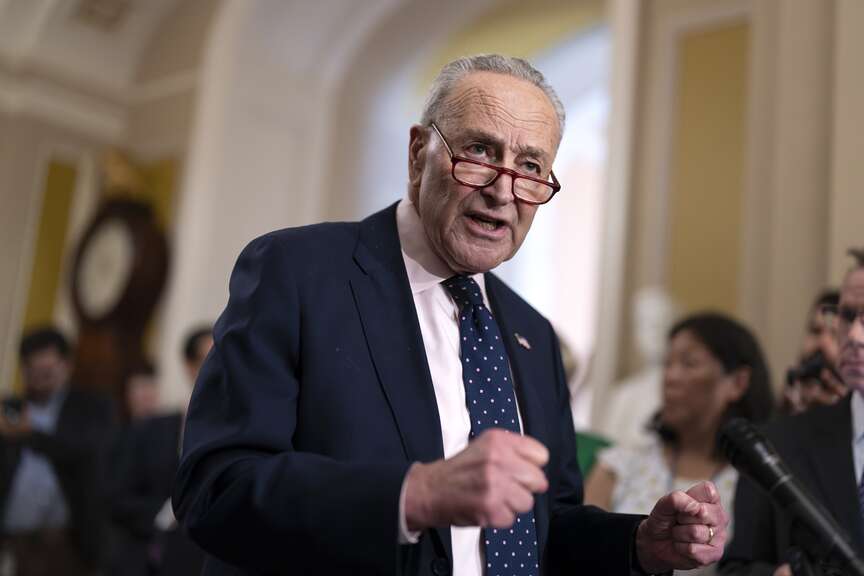A battle between the Arkansas Insurance Department and pharmaceutical manufacturers is heating up with the announcement of a hearing this summer to consider administrative penalties against AstraZeneca Pharmaceuticals LP, the drug manufacturing giant that filed a lawsuit against the state earlier this year over Act 1103 of 2021 — the 340B Drug Pricing Nondiscrimination Act.
The Arkansas Insurance Department has announced an administrative hearing will be held on Aug. 14 at 10 a.m. to consider sanctions against AstraZeneca over the drug manufacturer’s refusal to make its drugs discounted under 340B available to more than one contract pharmacy per covered entity. That refusal, said the department, is a violation of Act 1103 of 2021 which went into effect on July 28, 2021, and AID Rule 123 — 340B Drug Program Nondiscrimination Requirements — which was issued on Sept. 19, 2022, for the purpose of implementing and enforcing the state law.
According to the notice, on or about Aug. 1, 2023, AstraZeneca adopted a contract pharmacy policy for many of its products for 340B covered entities that lack an in-house pharmacy that recognizes only one contract pharmacy location per covered entity for those products. That refusal to honor contract pharmacy agreements resulted in a complaint to the Arkansas Insurance Department by St. Francis House NWA — a faith-based organization headquartered in Springdale which operates 20 health, dental and school clinics in Northwest Arkansas under the name Community Clinic — which indicated that AstraZeneca’s policy of limiting outpatient distribution of 340B drugs has negatively impacted its patients.
That hearing, originally scheduled for June 6, was rescheduled due to attorney conflicts, said Booth Rand, general counsel for the Arkansas Insurance Department.
The Arkansas Insurance Department is seeking a fine of $50,000 for each six-month period the drugmaker remains out of compliance and a cease and desist order prohibiting the drugmaker from applying its contract pharmacy limitations to Community Clinic or any other 340B covered entities in the state.
According to the complaint from St. Francis House NWA CEO Judd Semingson, AstraZeneca’s restrictions on 340B entities has resulted in the denial of distribution of 340B drugs to all but a single designated pharmacy.
“As the result of AstraZeneca’s policy,” the complaint read, “the contract pharmacies with which Community Clinic contracts do not receive delivery of 340B drugs produced by AstraZeneca on behalf of Community Clinic and Community Clinic’s patients cannot access those drugs through the contract pharmacies.”
AstraZeneca is one of a number of drugmakers pushing back on Act 1103, which requires drugmakers to pass along drug discounts under the 340B drug pricing program — so named because it is authorized under Section 340B of the Public Health Service Act — to any pharmacy that contracts with a qualifying hospital, known as a covered entity. According to the Health Resources & Services Administration (HRSA), which administers the 340B drug pricing program, qualifying hospitals include disproportionate share hospitals, sole community hospitals, rural referral centers, critical access hospitals, children’s hospitals and free-standing cancer hospitals.
According to Act 1103’s provisions codified in Arkansas Code Annotated §23-92-604(c) A pharmaceutical manufacturer shall not:
(1) Prohibit a pharmacy from contracting or participating with an entity authorized to participate in 340B drug pricing by denying access to drugs that are manufactured by the pharmaceutical manufacturer; or
(2) Deny or prohibit 340B drug pricing for an Arkansas-based community pharmacy that receives drugs purchased under a 340B drug pricing contract pharmacy arrangement with an entity authorized to participate in 340B drug pricing.
The federal 340B Drug Pricing Program was created in 1992 to protect covered entities from drug price increases and to provide access to price reductions. The program requires drug manufacturers participating in the Medicaid program to enter into pharmaceutical pricing agreements with the government to provide discounts of covered outpatient prescriptions purchased by covered entities serving vulnerable patient populations. Covered entities are then able to dispense the discounted medications to uninsured patients and to patients covered by Medicare.
HSRA has issued guidance twice during the life of the program — in 1996 and in 2010 — regarding contract pharmacies. In 1996, HRSA, noting that only 500 of the then 11,500 covered entities used in-house pharmacies, issued guidance that covered entities could have the option of contracting with one pharmacy of its choice to purchase covered outpatient drugs.
In 2010, HRSA expanded upon that guidance by allowing covered entities to enter into more complex arrangements that include multiple pharmacies.
Because Arkansas law prohibits most nonprofit and government-funded healthcare providers from operating in-house pharmacies, those providers must depend upon contracts with outside pharmacies to dispense outpatient prescriptions.
But in 2020, as the global coronavirus pandemic began to take hold, drugmakers began to crack down on the use of contract pharmacies, prompting the Arkansas General Assembly to take action with the passage of the 340B Drug Pricing Nondiscrimination Act requiring drugmakers to honor pharmacy contract commitments.
In September 2021, the Pharmaceutical Research and Manufacturers of America (PhRMA) sued the state, claiming that Act 1103 was preempted by federal law. In December 2022, U.S. District Judge Billy Roy Wilson disagreed and tossed the lawsuit. On March 12 of this year, a three-judge panel of the 8th Circuit Court of Appeals affirmed Wilson’s ruling. On Friday, the 8th Circuit denied a petition by PhRMA for an en banc hearing by the full 8th Circuit as well as a petition for a rehearing before the three-judge panel.
It was not known on Friday if PhRMA will petition the U.S. Supreme Court to take up the matter.
On March 25, AstraZeneca Pharmaceuticals LP, the of manufacturer of several blockbuster drugs used to treat high cholesterol, cancer and gastrointestinal distress, filed its own lawsuit against the state.
In its lawsuit, which names Arkansas Insurance Commissioner Alan McClain as the defendant, AstraZeneca claims that Act 1103 of 2021 violates federal patent law as well as the U.S. Constitution’s contract clause and the takings clauses in the U.S. and Arkansas constitutions and asks for a declaration that Act 1103 is “null, void, and unenforceable,” and that McClain be prevented from implementing or enforcing the law against AstraZeneca, “or any of its affiliates, officers, agents, or contractors.”
On Friday, according to Arkansas Insurance Department records, of 32 pharmaceutical manufacturers listed, 23 are now in compliance with Act 1103.
“So we’ve only got nine drug manufacturers left with the restrictions that would be subject to enforcement,” Rand said. “One of those nine is AZ so that’s kind of where we’re at.”
The manufacturers listed that are out of compliance are: AstraZeneca, Pfizer, Union Chimique Belge, Merck & Co., Jazz Pharmaceuticals, Incyte Pharmaceuticals, United Therapeutics, Exelixis Pharmaceuticals and Johnson & Johnson.
Five of the companies on that list — Pfizer, Union Chimique Belge, Merck & Co., Incyte and Johnson & Johnson — are members of PhRMA.
“I think it’s impressive that Arkansas has agreements with 75% of that group to lift or waive restrictions in response to Arkansas law and the 8th Circuit ruling,” Rand said. “As other states develop this legislation we’ll see drug manufacturers respond like that around the country, I think, where they are agreeing to comply with the Arkansas law.”
Rand acknowledged that drugmakers, as more states adopt models similar to Arkansas law, could seek a federal remedy by asking Congress to clarify the intent of the federal legislation that created the 340B Drug Pricing Program in 1992. If that were to happen, Rand said, the optimal outcome would be federal legislation that closely resembles Arkansas law.
“I think at that point the question becomes how Congress will handle state legislation that has already been drafted to prohibit these restrictions,” he said. “They would have to at least recognize that some states, like Arkansas, have enacted laws so how they would address that in language in federal reform, I don’t know.”
As of Dec. 1, 2023, according to the National Association of Community Health Centers, four states — Arkansas, Louisiana, Mississippi and West Virginia — have passed legislation prohibiting drugmakers from interfering with the ability of contract pharmacies to acquire 340B-discounted drugs. Another 28 states have passed legislation intended to protect 340B savings among community health centers.





























